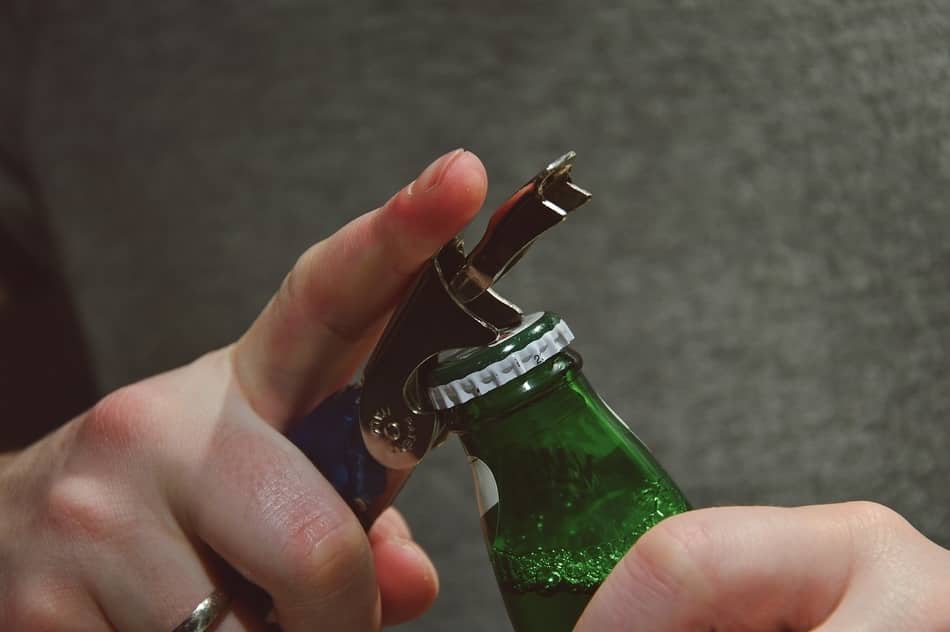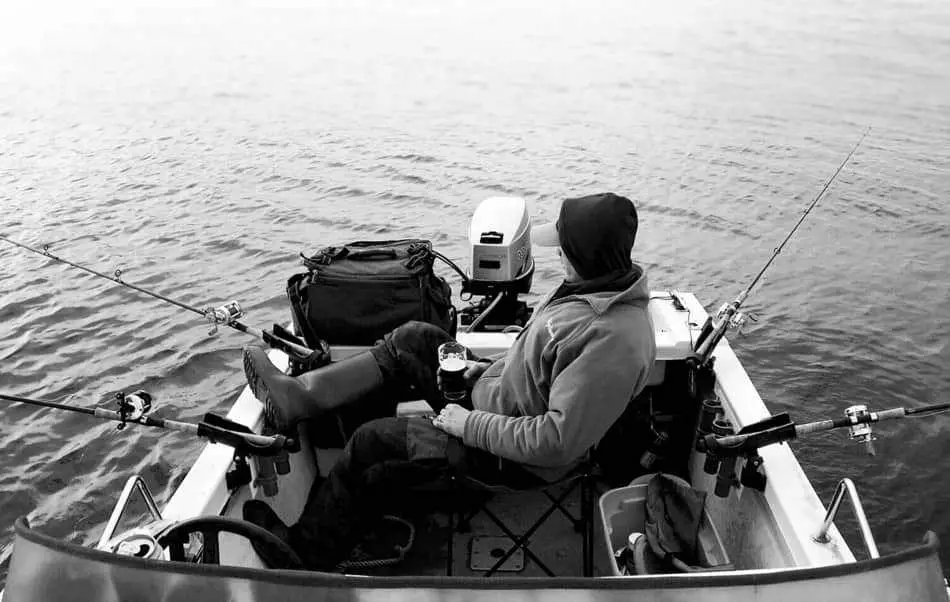Many people already know that boating under the influence isn’t legal and could be dangerous as well. But what about the passengers on the boat? Unlike boat operators, are passengers on a boat allowed to drink alcohol? Can passengers on a boat drink alcohol?
Passengers on a boat can drink alcohol (not the operator), and it is allowed in most states. But depending on the state you live in; you need to look at the state’s laws because many lakes have extra laws on top of the usual open laws, and some states don’t allow anyone to drink alcohol onboard.
To be clear, the boat operator (skipper) and the crew members (working in the boat) can’t drink alcohol; it is in the rules. Although there is no mention that the passengers are allowed to drink in the boat so, many states are OK with passengers drinking alcohol unless the operator is drunk.
If you’re looking for the law that says passengers of a boat can consume alcohol, there isn’t one (proper answer) because generally, laws are made to tell you what you can’t do, not what you can do. If it doesn’t say you can’t do it (boat passengers can’t drink alcohol), then you can.
And generally, within the state, any individual community or local governments can create their own laws that are more stringent than that the state’s laws if they choose to be. The rules changes from state to state, so you better look at your state laws before getting in the boat.
However, excessive alcohol consumption can be dangerous since drunk passengers who are chaotic can distract the boat driver, causing any problems (accidents). Check the section below to know more about the risks involved in passengers drinking alcohol on a boat.
So, if you are the boat operator and your passengers in the boat are consuming alcoholic beverages, you have to make sure they can’t be drunk to the point of risking themselves or someone else in the boat.
Most states’ laws define an “open container” as an alcoholic beverage with a broken seal that has been opened or has removed some of the contents. If you are living in those states, make sure you are not going against the rules by carrying open containers in the boat.
Nolo

Risks involved in Passengers drinking alcohol on a boat
Since most states allow passengers on a boat to drink alcohol, there are many risks involved in it when they drink excessively. Here are some of the (main) risks associated with passengers drinking alcohol on the boat (which can be dangerous for others onboard).
Drunk passengers who are chaotic can distract the boat operator, causing problems or accidents. With the inherent dangers of being on the (boat) water and drunk, passengers falling out of boats are at risk of drowning because physical performance, vision, and hearing will be diminished while drunk.
As a result of these factors, a boat operator or drunk passengers is estimated to be more than 10 times as likely to die in a boating accident than those with zero blood alcohol concentration (BAC).
Here are the few risks involved in passengers drinking alcohol on a boat.
- Drunk Passengers can distract the boat operator. Generally, drunk people will distract many people on the road, and if the passengers in the boat are drunk, they can easily distract the operator by being loud or chaotic in the boat.
- That distraction could sometimes cause some serious losses like accidents and more. And the drunk passengers falling out of boats are at risk of drowning because physical performance, vision, and hearing will be diminished while drunk.
- Drunk passengers can fall overboard. Alcohol consumption will mainly reduce physical performance. And cognitive abilities and judgment deteriorate, making it harder to process information, assess situations, and make good choices.
- If drunk passengers fall overboard, they are at the risk of drowning due to all the above factors. So, drunk passengers on a boat are at a significantly increased risk for injury and death – especially if they consume excessive amounts of alcohol.
A study completed in 2001 shows that boating passengers are more likely to die in a boating accident than the operator. Many passengers believe they can drink as much as they want as long as the operator stays sober. In reality, passengers are at risk regardless of whether the operator is consuming alcohol or not.
This is not only related to crashes but falling overboard and capsizing as well. With the inherent dangers of being on the water, passengers falling out of boats are at risk of drowning. Walking the shoreline close to the water or walking on docks or piers can be hazardous for those using intoxicants.
Virginia
Since passengers on a boat are legally allowed to drink, excessive alcohol consumption can be dangerous because drunk passengers who chaotic can distract the boat driver and cause an accident. Furthermore, drunk passengers may not be able to swim, resulting in death sometimes.
Can you drink alcohol on a boat?

In few states, under some circumstances, anyone can drink alcohol on the boat without any concerns. So, when can you drink alcohol on the boat without any issues pointing you?
When the boat is anchored or at the dock, and if it has permanent sleeping, cooking, and toilet facilities, you can drink alcohol on the boat without any issues in most states. However, a skipper can’t drink alcohol unless the boat is anchored and not missing any of those facilities in the boat.
So, if you want to consume alcohol on the boat and need not worry about any problems, make sure your boat is anchored or at the dock and the boat has sleeping, cooking, and toilet facilities. Eventually, if you live in the states that follow those rules, you can drink; otherwise, no.
Many states allow boat operators to drink alcohol until they are under the state’s BAC limit (Blood Alcohol Consumption). If your BAC values go above your states’ BAC limit, you will face legal problems, requiring you to pay penalties and arrests sometimes.
There are so many irregularities regarding alcohol on boards because first, you have the “legal limit” issue, which would apply to the driver (but might apply to a passenger as to “drunk in public”). Then there are “open container” (drinking in public) laws which may have no bearing on how much is consumed.
Did you know? Alcohol usage is a vital cause of boating deaths, which is responsible for 20% of boating deaths (source). That can be prevented by not drinking alcohol while operating the boat or keeping others for operating the boat.
So, it depends on the state you live in; since most states follow those rules (ok to drink when the boat is anchored and the boat has sleeping, cooking, and toilet facilities) doesn’t mean that your state would be following them. Check your state’s laws before hitting waters with alcohol.
Asking a LEO (a law Enforcement Officer is a public-sector employee whose duties primarily involve the enforcement of laws) would be a good start to know all the local rules where you go boating. To make sure you are following the rules.
Check this Findlaw website to know the BAC (Blood Alcohol Consumption) limits for all the states in the USA.
What are the effects of alcohol (while drinking on a boat)?
Alcohol has many physical effects that directly threaten safety and well-being in the water. Here are the effects of alcohol on our body from Colson Hicks Edison.
When a boater or passenger drinks, the following occur:
- Cognitive abilities and judgment deteriorate, making it harder to process information, assess situations, and make good choices.
- Physical performance is impaired – evidenced by balance problems, lack of coordination, and increased reaction time.
- Vision is affected, including decreased peripheral vision, reduced depth perception, decreased night vision, poor focus, and difficulty in distinguishing colors (particularly red and green).
- Inner ear disturbances can make it impossible for a person who falls into the water to distinguish up from down.
- Alcohol creates a physical sensation of warmth – which may prevent a person in cold water from getting out before hypothermia sets in.
As a result of these factors, a boat operator with a blood alcohol concentration above 0.10 percent is estimated to be more than 10 times as likely to die in a boating accident than an operator with zero blood alcohol concentration. Passengers are also at a greatly increased risk for injury and death – especially if they are also consuming alcohol.
Related post – Is boating safe or dangerous? Check this article to know whether boating is safe or dangerous in general, along with the statistics and safety norms to follow.
The conclusion
Most states allow boat passengers to drink alcohol, although the boat operator can’t drink alcohol. However, it also depends on the states you live in because some states don’t allow anyone to drink alcohol on board, and some allow passengers to consume. So, look at your local boating laws before hitting the waters with alcohol.
And generally, everyone on the boat can drink alcohol if the boat is anchored or at the dock and if it has permanent sleeping, cooking, and toilet facilities in most states. Unless the boat is anchored or at the dock, the boat operator cannot consume alcohol exceeding the state’s BAC limit.
However, excessive alcohol consumption can be dangerous since drunk passengers who are chaotic can distract the boat driver and cause an accident. So, try to avoid heavy quantities of alcohol if you are on board.
